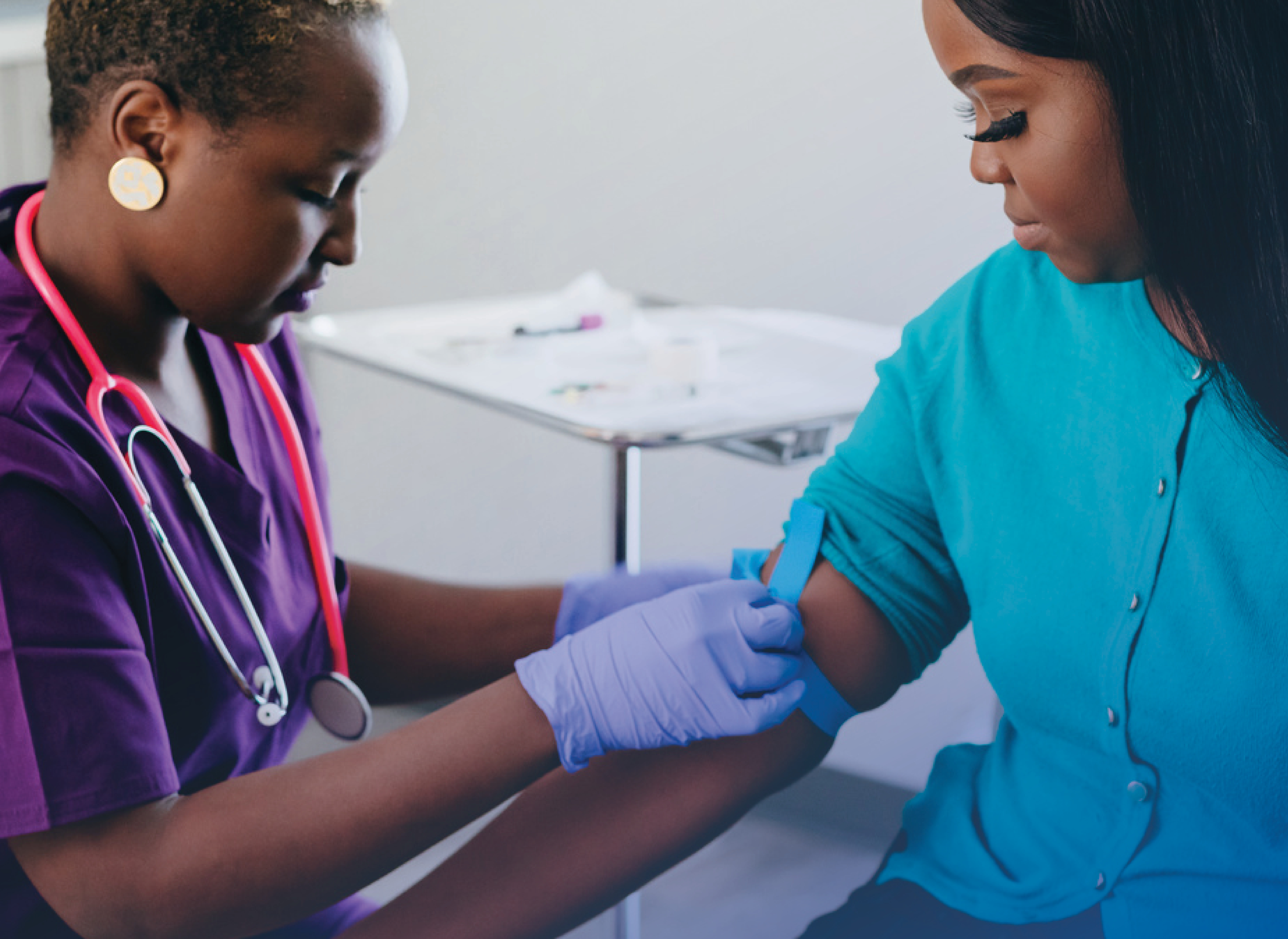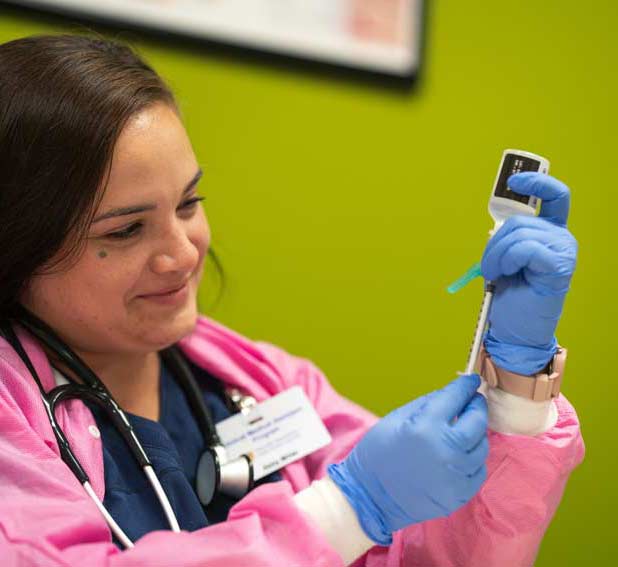What You Required to Know Before Starting a Phlebotomy Educating Course for Future Success
Prior to you start a phlebotomy training course, it's necessary to understand what the function entails and the abilities you'll need to do well. Researching accredited programs can set the foundation for your education and learning, but don't ignore the relevance of hands-on experience and interpersonal abilities. You'll additionally wish to think about qualification requirements specific to your state. What should you focus on in your preparation? Let's check out the crucial elements that can form your future in this area. Phlebotomy school.
Comprehending the Role of a Phlebotomist
Phlebotomists play a vital role in the medical care system, as they're responsible for injuring samples for tests, transfusions, or donations. You'll find on your own operating in various settings, like healthcare facilities, clinics, and research laboratories, where precision and expertise are crucial. Daily, you'll connect with people, discussing treatments to reduce their anxiousness, which helps build trust fund and connection.
Your tasks consist of preparing devices, maintaining a sterilized setting, and making certain exact labeling and paperwork of samples. You'll additionally need to remain updated on safety methods and guidelines, as patient safety is non-negotiable. Phlebotomists typically work together with other healthcare professionals, adding to precise medical diagnoses and efficient therapy strategies.
In this duty, you need to be detail-oriented and effective, as well as have a solid sense of compassion. Being a phlebotomist isn't practically attracting blood; it has to do with making a positive effect on individuals' lives.
Trick Skills Needed for Success in Phlebotomy
To grow in phlebotomy, you'll need a mix of technological and interpersonal abilities that set you apart from others in the medical care field (Phlebotomy school). First, grasping venipuncture techniques is crucial; you ought to fit with needles and learn to attract blood successfully. Focus to detail is crucial, as accurate labeling and paperwork can considerably influence patient care
Interpersonal skills additionally play a vital function. You'll communicate with people regularly, so being compassionate and friendly assists ease their anxiety. Good interaction skills are necessary for explaining treatments and seeing to it clients feel educated and secure.
In addition, time monitoring and business abilities will maintain you reliable, specifically in hectic health care settings. Staying updated on safety procedures and guidelines is non-negotiable to assure both your safety and that of your individuals. By honing these skills, you'll position yourself for success in the dynamic area of phlebotomy.
Selecting the Right Phlebotomy Training Program
Exactly how can you guarantee you're choosing the best phlebotomy training program for your demands? Beginning by investigating accredited programs in your area.

A program that assists you safeguard a task post-training can give you a substantial benefit in your phlebotomy occupation. With these aspects in mind, you'll discover a program that fits your goals and sets you up for success.
Certification and Licensing Needs
When it involves starting your phlebotomy job, comprehending qualification and licensing requirements is crucial. Each state has details policies you need to adhere to, so it is necessary to research study what applies to you. Additionally, you'll have to browse the accreditation examination process to assure you're completely certified.
State-Specific Laws
While seeking a profession in phlebotomy, comprehending state-specific regulations for accreditation and licensing is crucial. Each state has its very own needs, which can differ considerably. Some states need you to get a qualification from a recognized organization, while others might not have any type of official qualification demands in any way. It is essential to investigate your state's regulations to ensure you're certified. Additionally, some states may mandate a particular number of clinical hours or a specific level of training prior to you can function as a phlebotomist. See to it to remain updated on any changes in laws, as these can influence your capacity to practice. By recognizing what's required, you'll be better prepared to begin your phlebotomy job successfully.
Certification Examination Refine
As you prepare for a profession in phlebotomy, recognizing the accreditation examination procedure is necessary to your success. Research study the certifying organizations, like the National Phlebotomy Organization or the American Society of Phlebotomy Technicians. Each has certain demands, including training, scientific experience, and application charges.
Task Market Overview for Phlebotomists
As you take into consideration a job in phlebotomy, it is crucial to understand the job market overview. Need for knowledgeable phlebotomists is on the rise, driven by the growing healthcare market. You'll additionally wish to know what income expectations to prepare for as you enter this rewarding area.
Work Demand Patterns
Hospitals, centers, and blood donation facilities are proactively seeking certified phlebotomists to fulfill the needs of clients requiring routine blood job and specialized examinations. With an emphasis on preventive treatment and very early diagnosis, your skills in phlebotomy will be vital. Staying upgraded with certifications and training can improve your employability and placement you favorably in this expanding work market.
Income Expectations Summary
Phlebotomists can expect an affordable income that mirrors their skills and the expanding demand in the medical care market. Typically, you may earn between $35,000 and $45,000 each year, depending on your location, experience, and the center you help. In metropolitan locations, incomes tend to be greater as a result of the expense of living and raised need for health care services. In addition, qualification can enhance your earning possible, making you a much more appealing prospect. Numerous phlebotomists likewise take pleasure in benefits such as health and wellness insurance policy and retirement plans, which can additionally contribute to your overall payment. As the industry continues to increase, task opportunities and salary leads for phlebotomists are most likely to boost, making this an appealing job choice.
Potential Career Paths and Advancement Opportunities
While going after a phlebotomy training course, you may find a selection of profession paths and development chances that await you in the medical care field. As a qualified phlebotomist, you can function in medical facilities, blood donation facilities, or diagnostic laboratories. Each setting deals special experiences and obstacles, enabling you to develop your abilities.
You might likewise check out field of expertises, such as ending up being a contributor phlebotomy specialist or a lab assistant. These roles usually provide additional training and can result in higher wages.
Networking within the health care community can additionally help you discover task openings and mentorship opportunities. Welcome these possibilities, and you'll find that your phlebotomy career can progress in exciting methods.
Tips for Succeeding in Phlebotomy Training and Beyond

Method makes ideal, so benefit from any type of hands-on possibilities. Acquaint on your own with various methods and equipment to construct your self-confidence. Keep a favorable perspective, as your frame of mind can significantly impact your performance.
Network with industry experts and look for mentorship; this can result in beneficial insights and task chances after graduation. Take into consideration continuing education or qualifications to boost your Phlebotomy Training Course abilities and remain upgraded in the area. By adhering to these pointers, you'll not only prosper in your training however also lay a solid structure for a gratifying profession in phlebotomy.
Regularly Asked Concerns
What Is the Ordinary Cost of Phlebotomy Training Programs?
The average expense of phlebotomy training programs typically varies from $700 to $2,500, depending on the organization and location. You must look into different options to find a program that fits your budget and needs.
How Much Time Does Phlebotomy Training Commonly Take to Complete?

Are There Age Restrictions for Enrolling in Phlebotomy Courses?
There aren't rigorous age limitations for phlebotomy training courses, but a lot of programs need you to be a minimum of 18. Some might accept more youthful pupils with parental authorization or if you're signed up in a relevant academic program.
Can I Function While Going To Phlebotomy Training?
Yes, you can work while attending phlebotomy training. Numerous trainees manage part-time tasks together with their researches. Simply make certain to balance your routine efficiently, so you can concentrate on both job and your training.
What Material Do I Need for Phlebotomy Training?
For phlebotomy training, you'll need individual protective devices like handwear covers and masks, lab coats, a sharps container, alcohol wipes, needles, and blood collection tubes. See to it you've obtained every little thing all set prior to your first-rate starts.